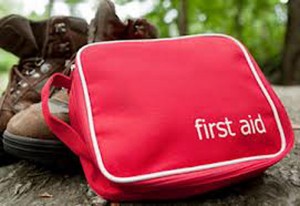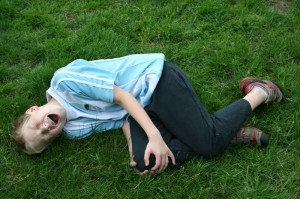 Camping can be an enriching and delightful experience spent alone or with family. Despite the benefits of spending a few days outdoors, eating off the land (if possible), and sleeping outside, you can easily injure yourself in minor and severe ways.
Camping can be an enriching and delightful experience spent alone or with family. Despite the benefits of spending a few days outdoors, eating off the land (if possible), and sleeping outside, you can easily injure yourself in minor and severe ways.
When planning and packing for a camping trip you must prepare for the possible common injuries and treatment. Prior to packing for the trip, it’s a good idea to have the luggage necessary to carry your clothing, first aid tools, tent, sleeping bag, and any other camping gear. Review the options available and choose the best backpacking option for any outdoors experience. Here are 5 comman camping injuries and treatment options:
Weather Induced Injuries
- Weather plays a major role in the camping experience. Of course it’s necessary to read the weather report before the trip.
- Frostbite, heat stroke, and dehydration are a few weather induced injuries that plague campers.
- Preparation keys the prevention of these injuries. Don’t pack a ton of clothes, but include the clothing that’s capable of handling extreme weather change.
- Pack enough fresh water. Drinking plenty of fluids is essential to a healthier you. It prevents the chances of heat stroke and dehydration. Pack enough fresh water for drinking purposes.
Skin Ailments
- Your skin can suffer in the wilderness. Rashes caused by poison ivy, sumac, and oak can ruin your trip and irritate skin. How do you treat unexpected rashes?
- Clean the rash with clean water. Isolate or clean any clothing/accessories that also came into contact with the plants. Knowing what these plants look like helps you avoid contact. Prevention is the key to treating rashes in the first place.
- Protect your skin with sunscreen. Wearing sunscreen and hats protects your skin from sun burn. Sun burn contributes to dehydration. If you get badly burned, then rest in the shade, drink plenty of water, and bring a bottle of aloe to treat the affected skin.
Snake and Insect Bites
![5 Common Camping Injuries and Treatment Options 5 Common Camping Injuries and Treatment Options]() Let’s hope mosquitoes are the worst of the insect or animal bites you receive. A snake or spider bite can be detrimental to your health and camping experience.
Let’s hope mosquitoes are the worst of the insect or animal bites you receive. A snake or spider bite can be detrimental to your health and camping experience.- In the unfortunate occurrence of such bites, immediately apply a bandage over the bite, wind it up the limb towards the body, immobilize the limb, and if possible bring the person to a hospital where they can receive proper medical treatment.
- Planning for mosquito or other less harmful insect bites isn’t as drastic. Pack insect repellent and don’t be afraid to wear it 24/7.
- Pack plenty of weather resistant matches for fires and burning off ticks.
Sprains/Fractures
- Traversing rock and uneven terrain may result in common ankle or wrist sprains. If this occurs it’s good to have portable dry ice packs that can easily be applied to reduce the swelling. Also, immobilize the sprain with a splint, medical tape, and elevate it to decrease blood flow to the region.
- If you happen to fracture a bone then it’s a good thing you packed a sling with lots of medical tape. Make a splint with a stick or long piece of wood, rolled up newspaper, or blanket. Immobilize it in whatever way possible. You can tape the limp to a splint or if it’s an arm injury then that sling will be useful.
Open Wounds and Cuts
![5 Common Camping Injuries and Treatment Options 5 Common Camping Injuries and Treatment Options]() Whether you scrape your knee, cut yourself with a knife, or rip open your chin when rock climbing, having the necessary tools to clean, treat, and keep the wounds clean is essential for your health.
Whether you scrape your knee, cut yourself with a knife, or rip open your chin when rock climbing, having the necessary tools to clean, treat, and keep the wounds clean is essential for your health.- Bandages, medical tape, hydrogen peroxide, bacitracin, and cotton swabs need to be packed into your first aid kit. When confronted with an open wound you must clean it with at least water. Hydrogen peroxide provides the disinfectant to sterilize your wound. I suggest using cotton swabs to clean out the wound with fluid. Then cover the wound with bacitracin to help it heal. Finally, secure it with bandages and medical tape.
- Whatever you encounter when camping, it’s important be prepared. Having the necessary knowledge and first aid tools lends you an upper hand if injury occurs.
- Also, choosing the right backpack among options available will help packing for camping and first aid. It’s easier camping when your first aid kit, water, tent, sleeping bag, and food all fit in one light compact backpack. If you encounter drastic injuries that call for immediate medical action, then moving fast with the resources on your back is important.
Authour: Ted Levin
Edited By: CampTrip.com
Ted Levin is a natural outdoorsman and camping enthusiast that loves to share any helpful tips. You can connect with him on Twitter and Google+.
Image Source – Grasshavenoutdoor.com
 Let’s hope mosquitoes are the worst of the insect or animal bites you receive. A
Let’s hope mosquitoes are the worst of the insect or animal bites you receive. A  Whether you scrape your knee, cut yourself with a knife, or rip open your chin when rock climbing, having the necessary tools to clean, treat, and keep the wounds clean is essential for your health.
Whether you scrape your knee, cut yourself with a knife, or rip open your chin when rock climbing, having the necessary tools to clean, treat, and keep the wounds clean is essential for your health.




















